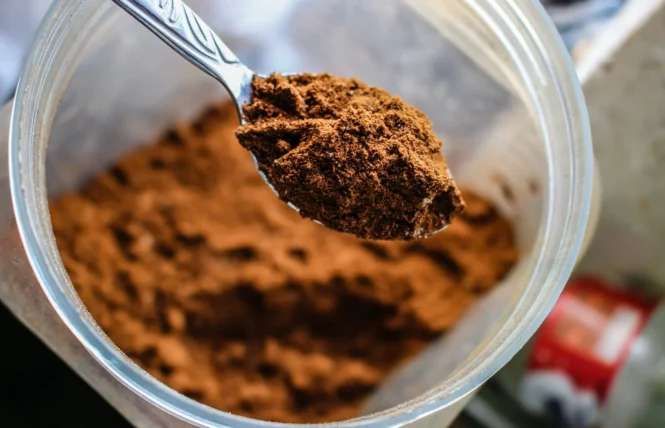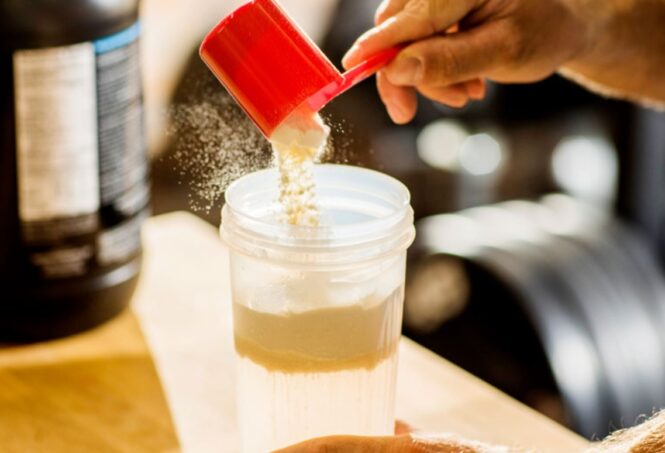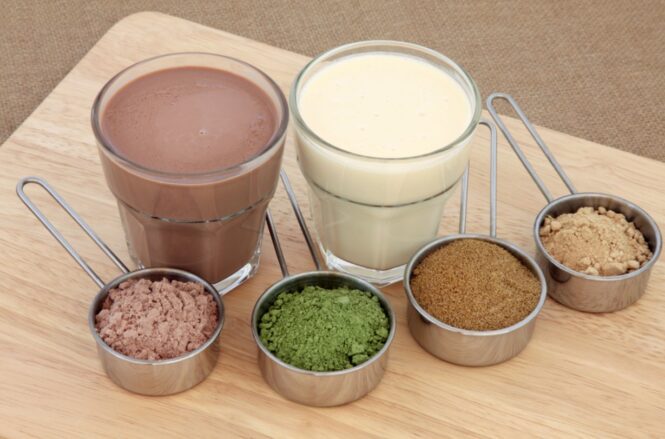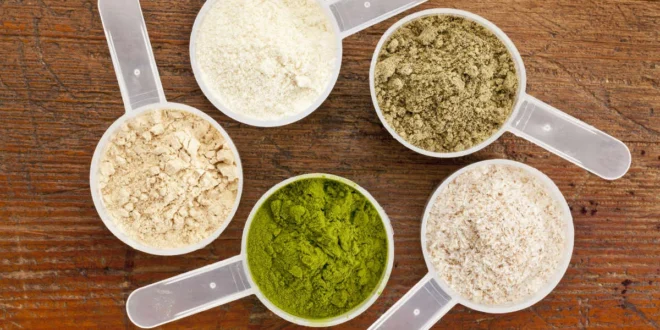In the current scenario of the food industry, we are experiencing some positive changes like food fortification, growing commodities, implementing zero hunger goals to meet the demands of the increasing population. Indirectly many of us face some or the other way still experience nutrient deficiency, threatening medical conditions, increasing stress which is affecting our daily lifestyle.
Here nutraceuticals take a step forward to eliminate the block line for all. Due to this cause, various brands have introduced metabolic enhancers, multivitamins, meal replacers and protein supplementation like whey protein powder, soya protein, hemp and vegan protein as per variable demands. They are made through a variety of sources mixed with specific formulations.
Example let’s consider the difference between vegan protein powder v/s whey…
| Characteristics | Vegan protein powder | Whey protein powder |
| Source | Plant based | Milk based |
| Calories | Low calorie | Not a low calorie |
| Flavour | Raw | Bland |
| Texture | Smooth | Thin liquid |
| Lactose Content | Lactose free | Contains lactose |
| Gluten Content | Gluten free | May contain gluten |
| Allergens | No allergens | May contain allergens |
| Easy to digest | Yes | No |
| Pricing factor | Expensive | Less expensive |
Post understanding the difference to the core, individually let’s have a look at the benefits of both protein powders in depth!
Benefits of Plant based proteins:

1] Plant based proteins are easy to digest since they lack lactose. People who are facing acidity, bloating, lactose intolerant and need friendly gut protein powder – this type is the best to switch for.
2] Plant protein carries a great taste. It has high quality natural ingredients to support the body’s natural process.
3] Plant protein boosts energy metabolism. It contains 35% of iron requirement as compared to red meat. This is another reason why this can be consumed on a daily basis.
4] Being high in fiber, it ensures this type of protein gives satiety for a longer time. It provides both, soluble and insoluble fiber which in-turn protects gut health. This is a big profit for people whose blood sugars are at spike every time.
5] It also boosts the immune system which is an integral part of human nature. Vegan diets and vegan powders are high in vitamins and minerals. It contains antioxidants which reduces the harmful bacteria in the body [anti-inflammatory response].
Benefits of Whey protein:

1] Clinical studies show that whey protein promotes anabolic hormones like insulin which leads to muscle growth.
2] As per the ICMR, every individual needs to have 0.8 to 1.0 gram protein as per body weight. It is such a useful macronutrient that meets up protein requirements plus enhances satiety along with it.
3] In terms of body composition, whey is the soluble and richest form of protein. People who are aiming for a lean body are the ones who look in for these types of protein.
4] There is a set of essential and non-essential amino acids responsible for repair of muscles, bones, tissues. Whey has BCAA which are crucial for preservation of muscles. Leucine on the other side, improves response towards blood glucose, promotes human growth hormone.
5] As compared to men, women can also benefit more in terms of whey. Whether it is your hormones, hair, skin or nails, whey helps in smooth functioning of all. Very few people are aware that whey also has healing properties and hence it is also effective in a few diseases related to cancer, liver and immune suppression cases as well.
After carefully having a glance at benefits for vegan protein powder v/s whey, let’s move ahead with the cost factor, digestibility and how they are made one by one.
Whey Protein v/s Plant Protein:

How are they made?
Whey are they isolated form whey which is a by-product whereas plant based is derived from various plant based sources like brown rice pea protein, soybean. Whey contains lactose which post processing gets partially eliminated. Plant protein has no lactose and due to increasing demand of veganism, many pharma companies are trying to establish the best vegan protein powders in India.
Quality protein content?
On an average vegan protein powders contain an average of 20-30 grams per serving depending upon the source opted. Whey protein is considered as “complete protein” which contains all essential amino acids, where BCAA tops the highest [isoleucine, leucine, valine].
Digestibility factor?
As discussed whey contains lactose which many people are not fond of these days. This further can add to stomach upset. Plant protein has natural plant based ingredients present like soya, pea etc. But people who are allergic to peas can face cramping later.
Muscle effectiveness?
To build muscles, nutrition and weight training both are important. Though whey has all nine essential amino acids, plant based proteins also have considerable amounts of leucine and BCAA.
How to use your protein powders?
• Add a scoop to any cereal based meal like oatmeal / muesli
• Can be added to pancakes, brownies
• Fruit or vegetable smoothies
• Protein balls or parfait
How to choose the best protein powder in India??

The following credentials should be taken care of while opting for the best vegan protein powder in India –
· It should be simple and recognizable.
· There should be no preservatives, colors added to the vegan protein powder.
· Very important, the consumer should know what is the exact plant based source used.
· Blends used by the manufacturers.
· The vegan powder should be affordable (cost effective) and easy to use.
· Read the nutrition label always.
Frequently Asked Questions:
Q1) How much protein does a person need daily?
Answer – Indian Council of Medical Research (ICMR) recommends to have 0.80-1.00g of protein per kg of body weight in a day.
Q2) Can plant based protein powders be used daily?
Answer – Plant based protein powders are absolutely safe to consume. It helps in meeting daily requirements and in addition it has a high quality first class protein and good vitamins and mineral content present in it.
Q3) Which is the better protein, plant based or whey?
Answer – It depends on individual requirements, goals and targets. If a person is lactose intolerant, he/she can opt for vegan protein powders whereas if a person is looking for muscle hypertrophy and good amino acid profile then whey would be the choice.
Q4) What are the sources of plant based proteins in terms of daily nutrition?
Answer – Legumes, Cereal Pulse combination, Nuts and seeds and superfoods like spirulina are a great source of protein which can be inculcated in day to day routine.
Q5) Which protein has better nutrient quality composition?
Answer – Vegan protein powder is more efficient plus are very high in nutrients as compared to whey protein powders.
 Imagup General Magazine 2024
Imagup General Magazine 2024



